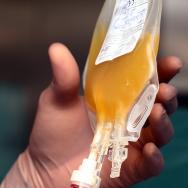As the coronavirus outbreak began to escalate around the world, policy discussions focused on the need to “flatten the curve” of the virus’s spread—slow the rate of infections, and thereby blunt the peak caseload. But keeping hospitals and health systems from being overwhelmed by COVID-19 also requires another measure: ramping up patient capacity.
University of Chicago economists Sendhil Mullainathan and Richard H. Thaler are looking for ways to do just that.
In a recent op-ed in The New York Times, the two scholars from the Booth School of Business identified areas where adjusting or suspending certain regulations—temporarily, in most cases—might give hospitals the ability to treat more patients. Their suggestions included recognizing out-of-state medical licenses, putting a moratorium on coronavirus-related malpractice suits, and suspending patents for critical equipment when patent holders are unable to meet demand for their products.
They have also created a website, PauseRegulations.com, to solicit suggestions for targeted deregulation from members of the public—especially those on the frontlines of the coronavirus fight, such as health care workers or manufacturers of medical supplies.
“In a crisis, it makes sense to relax certain rules, government rules that might be preventing us from getting where we want to go,” said Thaler, a Nobel laureate and one of the founders of the field of behavioral economics.
In its first week, the site—administered by Chicago Booth’s Center for Applied Artificial Intelligence—collected dozens of responses from people across the country. One popular topic has been telemedicine, and restrictions around where and how it is used. Respondents have noted that allowing providers to see patients remotely reduces risk of infection for both parties while maintaining access to medical care.
Other suggestions have focused on deregulating supply chains, adjusting rules around the prescription of various drugs, and relaxing regulations around COVID-19 testing.
The Center for Applied Artificial Intelligence—which is directed by Mullainathan, the Roman Family University Professor of Computation and Behavioral Science—will work on the most promising suggestions in collaboration with students from the Harris School of Public Policy.
Together, they will detail the relevant regulatory bodies for each idea, the benefits and consequences of reforming the regulation in question, and recommendations for action. The Center for Applied AI is forming partnerships with various members of the legal and policy consulting community, who can use the resulting reports to funnel ideas to the right decision-makers.
“The normal process by which some idea that academics have gets implemented by somebody takes years,” said Thaler, the Charles R. Walgreen Distinguished Service Professor of Behavioral Science and Economics. “What we hope is that a staffer in some governor’s office gets an idea, tells their governor who then makes it happen.”
Many policymakers already appear to recognize the need for practical deregulation, at least on a temporary basis. New Jersey Gov. Phil Murphy has granted health workers immunity from medical malpractice lawsuits related to COVID-19. States including Michigan and Illinois have relaxed state licensure requirements for out-of-state health workers.
“A lot of this stuff seems to be happening,” Thaler said. “Not surprisingly, we weren’t the only ones thinking about this.”
—This story was originally published by the Chicago Booth Magazine. Have a suggestion for a regulatory pause that could help facilitate a better response to the pandemic? Suggest it at PauseRegulations.com.

